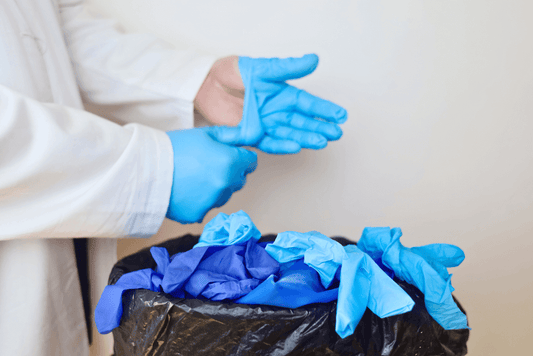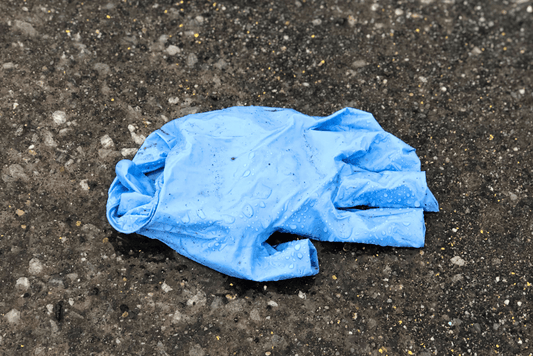Importance of Recycling PPE For Healthcare in the UK
Personal Protective Equipment (PPE) has become a cornerstone of modern healthcare. Gloves, gowns, masks, and visors protect frontline staff and patients alike. Yet, the same equipment that safeguards lives also produces an immense volume of waste. The question is no longer whether PPE is necessary, but how its end-of-life can be managed in a responsible, resource-conscious manner.
This article outlines why recycling of PPE is needed in the UK healthcare sector, the current methods being developed, the barriers in place, and the steps forward for organisations and individuals involved.
Rising Volumes of PPE Waste
Hospitals, clinics, and care facilities consume large amounts of disposable equipment every single day. During peaks such as the pandemic, demand soared. The result was an unprecedented strain on waste systems. Incineration and landfill quickly became the default, yet these routes lock away potential value and place pressure on environmental targets.
With sustainability now high on national agendas, healthcare providers are rethinking their waste streams. PPE cannot be treated like general refuse. Its scale and material composition require new solutions that divert products from disposal toward reuse or recycling.
Understanding Material Types
Recycling depends on knowing what PPE is made from. Masks and gowns often use polypropylene, a plastic that can be reprocessed into pellets for new applications. Gloves may be latex, nitrile, or vinyl, each demanding a different route. Face shields combine plastics with elastic bands or foam, making disassembly part of the challenge.
Sorting and separation remain critical. Facilities must distinguish clean items from contaminated ones. Only then can equipment be channelled into safe recycling pathways. This makes design simplicity, fewer material mixes, and easier breakdown an ongoing priority.
Current Recycling Methods
Mechanical recycling is being applied to certain PPE plastics. Items are shredded, sterilised, and melted down for reuse. The recovered plastic often finds its way into products such as packaging or construction materials.
Chemical recycling is also under development. This method breaks plastics into their molecular building blocks. While more resource-intensive, it produces outputs close in quality to virgin materials. Trials in the UK and Europe are assessing its viability at the healthcare scale.
Downcycling plays a role as well. PPE that cannot return to its original purpose may be repurposed into lower-value products. This extends material life even if it does not close the loop fully.
Barriers to Wider Adoption
PPE waste presents distinct obstacles. Hygiene and safety are paramount in medical settings. Materials must be sterilised before processing, adding cost and infrastructure requirements.
Economic feasibility is another limiting factor. Recycling operations depend on steady streams of sorted waste, which requires coordination across hospitals and suppliers. Mixed-material items remain difficult to handle, slowing progress.
Despite these barriers, innovation continues. Pilot projects have demonstrated that PPE can be recycled at scale, provided there is commitment from both providers and policymakers.
The Role of Healthcare Organisations
Hospitals and care facilities can influence outcomes by adopting structured collection systems. Clear bins for uncontaminated PPE, staff training on disposal, and collaboration with recycling partners make a measurable difference.
Procurement choices matter too. By sourcing equipment designed for recyclability, organisations set the stage for easier end-of-life processing. Some suppliers already offer single-material gowns or masks created with recycling in mind.
Public reporting of waste management practices is also rising. Healthcare organisations that demonstrate responsible handling of PPE waste strengthen trust and accountability.
Policy and Industry Support
The UK is moving toward stricter frameworks for managing healthcare waste. Guidance on segregation and disposal is expanding, while research funding supports recycling technologies. Some local NHS trusts have launched initiatives that divert thousands of tonnes of PPE from landfill.
Partnerships between government, recyclers, and equipment manufacturers are central. These collaborations bring technical expertise and scale that no single hospital could achieve alone. Investment in automated sorting, sterilisation, and reprocessing facilities is gradually building national capacity.
Contribution of Consumers and Staff
While large systems handle most of the responsibility, individual actions still count. Healthcare workers can support recycling by following disposal protocols accurately. Patients and visitors can contribute by respecting signage and waste separation.
Awareness campaigns inside facilities help embed the practice. Posters and staff briefings highlight where items go, reducing contamination of recycling streams. These steps appear small but collectively shape success.
The recycling of PPE in UK healthcare is still developing, but progress is visible. New technologies are being trialled, regulations are tightening, and partnerships are multiplying.
The next phase will depend on simplifying product design, scaling chemical recycling plants, and expanding collection infrastructure across the NHS and private care providers. Achieving this will reduce both landfill burden and demand for virgin plastics.
Healthcare has always been about protecting lives. Extending that protection to the environment by responsibly handling PPE waste is a logical continuation of that duty.
Partner with Earth Safe PPE to securely recycle used textiles and PPE through our trusted service. From garment shredding to certified destruction, we provide a reliable, eco-conscious solution that supports your organisation’s carbon reduction goals. Call us at +44 7482 212945 or visit our contact page.








